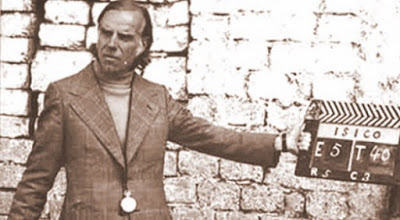A Voice for the Impossible
Rebecca Spears
 Train us Lord to fling ourselves upon the impossible, for behind the impossible is your grace and your presence; we cannot fall into emptiness.
—Father Luis Espinal Camps, 1932 – 1980
Train us Lord to fling ourselves upon the impossible, for behind the impossible is your grace and your presence; we cannot fall into emptiness.
—Father Luis Espinal Camps, 1932 – 1980
In March 1980, the Jesuit Father Luis Espinal was tortured and murdered, his bound and gagged body found abandoned on a road outside of La Paz, Bolivia. Originally from Spain, Espinal had moved to Bolivia in 1968 to chair the journalism department at the Universidad Católica Bolivian. Two years later, after falling in love with his new home, he became a Bolivian citizen.
In Spain, Espinal had made a name for himself as an activist-journalist, writing articles on societal injustices, and this work continued in Bolivia. In fact, the priest became a more outspoken activist, living among miners and their families, and advocating for their rights. In 1979, he helped found the Permanent Assembly for Human Rights.
These things he did while the political climate was hardening towards dictatorship and control by ultra-conservative militarists and neo-fascists. During the short-lived dictatorship of Luis Garcia Meza (1980 – 81), political parties were outlawed, the press was silenced; assassinations and torture replaced any notion of due process. Espinal’s continued activism and denunciations of government actions labeled him an ardent left-winger, and marked him for assassination.
Some people in the world speak with the courage of their conviction on a daily basis and will not be silenced. They do this despite threats to their person and property, and despite reprisals to those close to them. Father Luis Espinal is one of those people. Common sense tells many of us to tone down our opinions when we are threatened.
I often think of myself as commensensical, and that handicaps me at times, when I don’t speak up. So I am grateful for the people who speak and act as Luis Espinal, not just for themselves but for the rights of others, for a free and more just society. This quality embodies greatness. The odds facing Father Espinal were stacked against him, his task was nearly impossible. Yet he continued to advocate for the miners’ rights and against government oppression, putting himself in grave danger.
Today in Bolivia, under the leadership of Evo Morales, the citizens enjoy a more free and equitable society with a higher rate of literacy, less poverty, and a commitment to environmental stewardship. Many believe that the influence of Father Luis Espinal several decades earlier helped set in motion this movement toward a more equitable and free Bolivia.
In July 2015, during Pope Francis’s visit to Bolivia, he stopped along the highway from the El Alto airport to La Paz to bless the spot where Espinal’s body was found. The pope told those who had gathered, “I stop here to greet you and, above all, to remember. To remember a brother of ours, the victim of those who did not want him to fight for freedom in Bolivia. Father Espinal preached the Gospel, and this Gospel troubled them, so they eliminated him. Let us spend a moment in silent prayer, and then let us pray together.”
How could I ever forget Father Luis Espinal’s work: his story inspires me. Though my work is on a much smaller scale, educating special needs students, I remember his words when my own work seem impossible to accomplish. In fact, his prayer of the impossible has become a living thing to me. I’ve memorized the first lines, so that at times, I can repeat it to myself and keep working.